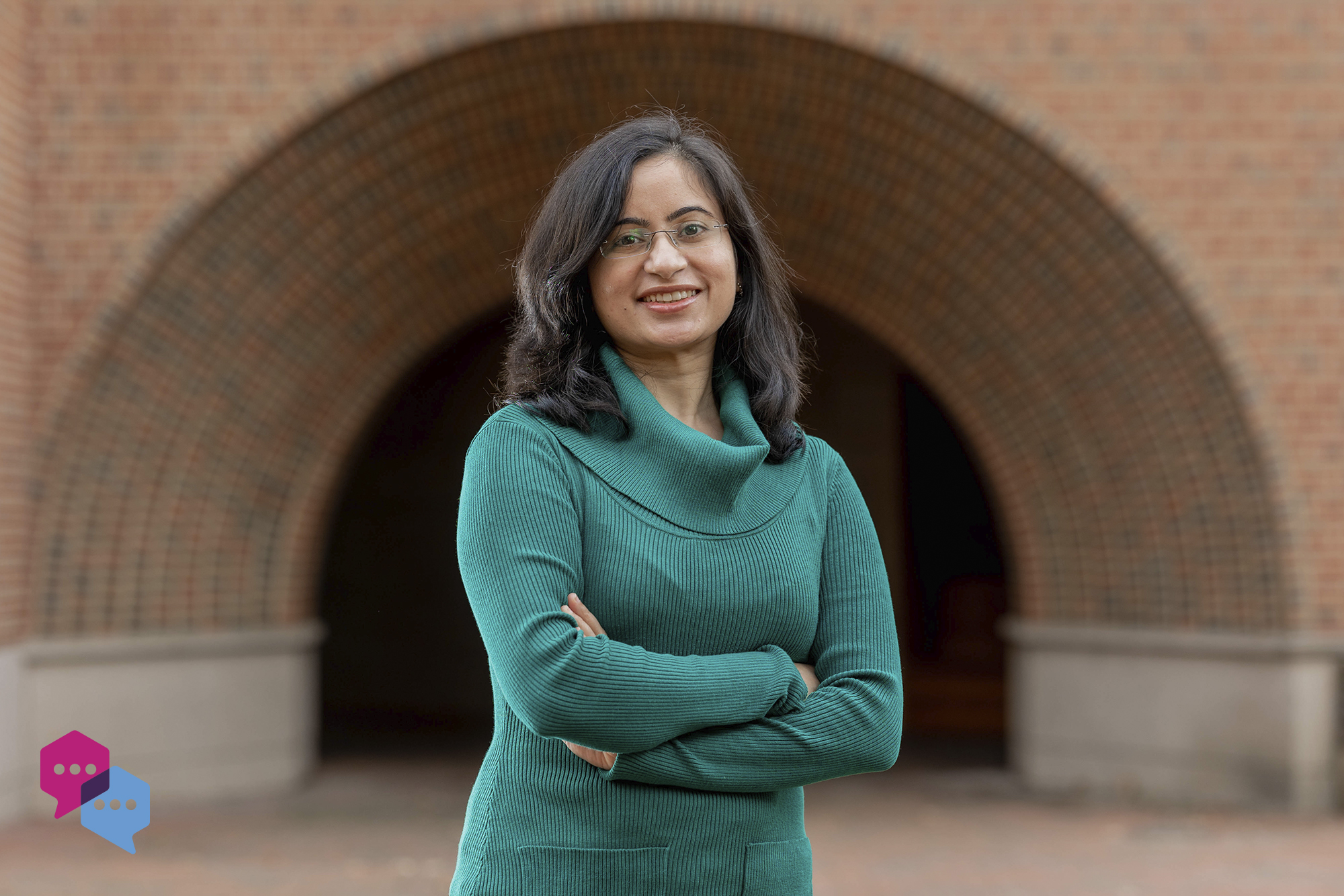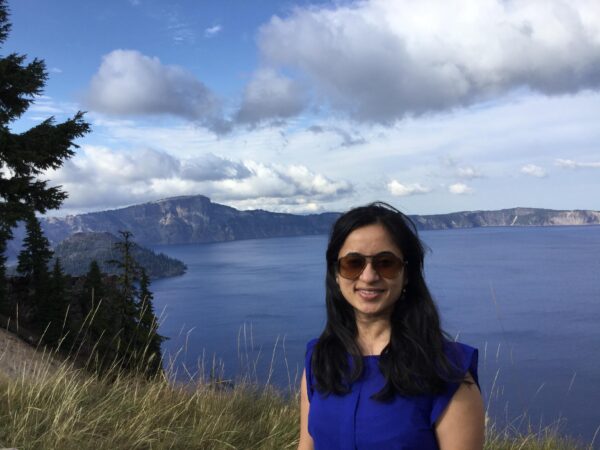RUNC: Snigdha Chaturvedi
Snigdha Chaturvedi studies language that connects society and computers.
By UNC Research
July 27, 2022
Innovation · Research Uncovered

Snigdha Chaturvedi is an assistant professor in the Department of Computer Science within the UNC College of Arts & Sciences. She studies natural language processing — how computers understand human languages.
Endeavors recently spoke with Chaturvedi to learn what inspired her to pursue her field, how she’s overcome obstacles, and a little about her life beyond academics.
Q: When you were a child, what was your response to this question: “What do you want to be when you grow up?”
A: I kept changing my opinion about what I wanted to be. For a while, I wanted to be a scientist, or a teacher like my mom, or a doctor like my dad. Later, following a discussion with a cousin in high school, I decided to be an engineer. This remained my vision for a long time until a few years ago, when I decided to be a researcher and a professor.
Q: Share the pivotal moment in your life that helped you choose your field of study.
A: My interest in computer science started in high school with programming classes. Initially, I found programming to be extremely challenging because it required an unusual problem-solving approach and thinking in abstract terms. Nevertheless, I loved — and still love — these challenges because every programming exercise seemed like a new puzzle, requiring me to think carefully and deeply about every little step I took to solve it. Each line of code required me to think about how it would impact all other parts of my code. This became even more challenging, yet fascinating, because I was solving the puzzle in a virtual world, without the ability to physically observe the impact of my steps. But with persistence and practice I slowly developed the required skills and became good at it.

Q: Tell us about a time you encountered a tricky problem. How did you handle it and what did you learn from it?
A: When I was a new PhD student, I had to pick a problem for my dissertation. I read a lot of papers and thought about it often, but couldn’t settle on a problem. It wasn’t that I couldn’t identify a problem. In fact, I could identify a bunch of them. I couldn’t decide which one to pursue. Then, one day, I was talking to a senior professor and asked him about it. He suggested working on a new problem that, when solved, should impact my field. At the same time, it should be something that others have not paid attention to. I really liked the suggestion and decided to work on making computers understand the social aspects of human behavior. It has the potential to transform the experience users have with modern artificial intelligence systems, and few people in my field were studying this problem at that time. To this day, it forms the core of my research interests.
Q: Describe your research in 5 words.
A: Language connecting society and computers.
Q: What are your passions outside of research?
A: Embroidery, taking long walks, traveling, and swimming. Irrespective of how much I love my work, breaks help me recharge and provide a broader perspective of what I have been doing.
Research UNCovered delves into the lives of UNC researchers from all disciplines and career levels, showcasing not only their research prowess but personal experiences in academia and beyond. Know someone we should feature? Nominate a researcher.
